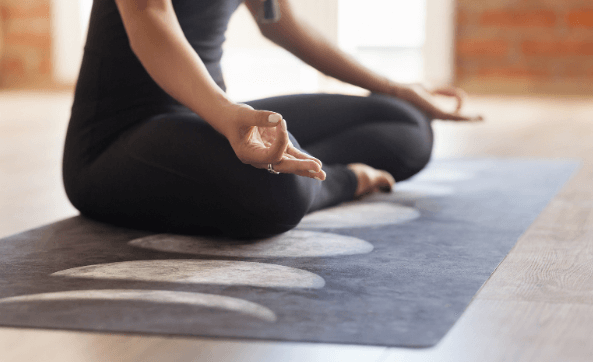What Are the Main Types of Yoga Instructors?
To become a yoga instructor, you need to specialize in teaching various styles of yoga, each with unique benefits and techniques. Here are the main types of yoga instructors:
- Hatha Yoga Instructor: Focuses on teaching basic postures and breathing exercises. Hatha yoga is often used as an introduction to yoga, helping students build strength, flexibility, and relaxation.
- Vinyasa Yoga Instructor: Teaches a dynamic, flow-based style of yoga where movements are synchronized with breath. Vinyasa instructors guide students through continuous sequences that improve endurance and flexibility.
- Ashtanga Yoga Instructor: Teaches the structured, physically demanding Ashtanga sequence, which emphasizes strength, flexibility, and discipline. Ashtanga instructors often lead students in a set series of postures.
- Bikram/Hot Yoga Instructor: Leads classes in a heated room, following the structured Bikram sequence or other heated yoga styles. Instructors in hot yoga encourage students to build flexibility and detoxify through sweat.
- Yin Yoga Instructor: Focuses on slower, longer-held poses that target the deep connective tissues. Yin instructors guide students in relaxation and introspection, aiming to improve joint flexibility and circulation.
- Iyengar Yoga Instructor: Emphasizes precision and alignment in each posture, often using props like blocks and straps. Iyengar instructors help students refine their practice through detail-oriented guidance.
- Restorative Yoga Instructor: Guides students through gentle, supportive poses using props to encourage deep relaxation and stress relief.
- Prenatal Yoga Instructor: Specializes in yoga for expectant mothers, helping them maintain flexibility, reduce stress, and prepare for childbirth. Prenatal instructors tailor poses for safety and comfort.
- Kundalini Yoga Instructor: Focuses on spiritual and energetic practices, incorporating breathing exercises, chanting, and meditation. Kundalini instructors help students harness inner energy and achieve mental clarity.
- Power Yoga Instructor: Leads high-intensity classes focused on building strength and endurance. Power yoga instructors guide students in a fitness-oriented approach to yoga, often with a vigorous pace.
Each type of yoga instructor requires specific training and knowledge of the relevant style, allowing students to benefit from the unique aspects of each practice.

What Does a Yoga Instructor Do?
To become a yoga instructor, you are responsible for guiding students through physical postures, breathing exercises, and meditation techniques. Their duties may include the following:
- Planning and Leading Classes: To become a yoga instructor, you design sequences of poses, breathwork, and relaxation techniques, tailoring them to the skill levels and goals of their students.
- Demonstrating Postures: To become a yoga instructor, you demonstrate poses to ensure students understand proper form and alignment. They may also adjust students’ postures to improve technique.
- Teaching Breathwork and Meditation: To become a yoga instructor, you guide students in breathing exercises (pranayama) and meditation to enhance relaxation, focus, and mental clarity.
- Providing Modifications: To become a yoga instructor, you offer modifications for poses, accommodating students of varying skill levels and addressing physical limitations or injuries.
- Educating Students on Yoga Philosophy: To become a yoga instructor, you incorporate elements of yoga philosophy, such as mindfulness, self-compassion, and the principles of yoga, to enrich the practice.
- Ensuring Safety and Comfort: Instructors monitor students to ensure safety, preventing injuries by guiding them in proper alignment and avoiding poses that may cause strain.
- Creating a Supportive Environment: To become a yoga instructor, you cultivate a welcoming, non-judgmental atmosphere that encourages students to connect with their bodies and minds.
- Continuing Education: To become a yoga instructor, you often attend workshops, retreats, and additional training sessions to deepen their understanding and stay updated on new techniques.
To become a yoga instructor, you play a crucial role in helping students develop physical strength, flexibility, and mental well-being, using yoga as a tool for personal growth and relaxation.

Average Yoga Instructor Salary
Salaries for yoga instructors vary based on experience, location, and teaching format (e.g., studio classes, private sessions, or corporate classes). Here’s an overview of typical earnings for yoga instructors in the UK:
- Entry-Level Yoga Instructors: New instructors typically earn between £15,000 and £25,000 annually, with income often coming from hourly or per-class rates.
- Experienced Yoga Instructors: With several years of teaching experience, instructors may earn between £25,000 and £35,000. Experienced instructors may attract loyal clients and teach at premium studios or corporate events.
- Specialized or Senior Yoga Instructors: Instructors with specialized skills, such as prenatal or advanced Ashtanga yoga, may earn between £35,000 and £50,000 or more, depending on demand.
- Self-Employed and Freelance Yoga Instructors: Freelance instructors set their own rates, with hourly fees ranging from £20 to £70 or more, depending on their experience and location. Private or corporate sessions typically command higher rates.
Yoga Instructor Skills
Successful yoga instructors require a combination of physical, interpersonal, and instructional skills. Key skills include:
- Knowledge of Anatomy and Physiology: To become a yoga instructor, a strong understanding of body mechanics, muscles, and joints is essential for guiding safe and effective poses.
- Clear Communication: Instructors must be able to explain poses, breathing techniques, and mindfulness concepts clearly and concisely.
- Physical Stamina and Flexibility: To become a yoga instructor, demonstrating poses and maintaining physical fitness is often part of the job, as it helps inspire confidence in students.
- Empathy and Compassion: To become a yoga instructor, you should be attuned to the emotional and physical needs of students, fostering a supportive and understanding environment.
- Mindfulness and Presence: Being present and mindful allows instructors to create a calm and focused environment, essential for teaching yoga effectively.
- Adaptability: To become a yoga instructor, you must be able to adjust classes based on students’ needs, skill levels, and any physical limitations.
- Business and Marketing Skills: Freelance yoga instructors often need to promote their services, manage schedules, and build client relationships. Marketing skills can help attract students and grow a client base.

Yoga Instructor Tips
Here are some essential tips for becoming a successful yoga instructor:
- Complete a Comprehensive Training Program: Enroll in a reputable yoga teacher training (YTT) program, ideally with 200-hour certification. This is the minimum requirement for most teaching positions.
- Practice Consistently: Maintain a regular personal practice to deepen your understanding of yoga and stay inspired. Practicing regularly also keeps your teaching skills sharp.
- Choose a Specialization: Specializing in a particular style, such as restorative or prenatal yoga, can set you apart and attract specific client groups.
- Seek Mentorship and Feedback: Learning from experienced instructors and seeking feedback can help you refine your teaching style and improve your skills.
- Build a Network: Networking with other yoga instructors, studio owners, and wellness professionals can provide job opportunities, collaborations, and support.
- Market Yourself: If you plan to freelance, develop a website or social media presence to showcase your offerings. Marketing helps you connect with potential students.
- Stay Educated: The field of yoga is constantly evolving, so continue your education through workshops, advanced certifications, and retreats to keep your teaching fresh and effective.

Yoga Instructor Requirements
Becoming a yoga instructor typically requires formal training, certification, and experience in yoga practice. Here’s what you’ll need:
- Yoga Teacher Training (YTT) Certification: Most studios require a 200-hour YTT certification, which covers yoga philosophy, anatomy, asanas (poses), and teaching methodology. Advanced certifications, such as 300-hour or 500-hour YTT, provide deeper knowledge.
- First Aid and CPR Certification: Many studios require yoga instructors to hold a current First Aid and CPR certification to ensure student safety in case of emergencies.
- Liability Insurance: Freelance instructors should have liability insurance to cover any potential risks associated with teaching yoga.
- Personal Yoga Practice: Regular personal practice is important for building skills, understanding yoga philosophy, and maintaining the physical fitness required to demonstrate poses.

How to Become a Yoga Instructor
Here’s a step-by-step guide to becoming a yoga instructor:
- Develop a Personal Yoga Practice: Commit to a regular yoga practice, exploring different styles and techniques. Consistent practice helps you gain a deeper understanding of yoga and prepares you for teaching.
- Enroll in a Yoga Teacher Training Program: Choose a 200-hour YTT program accredited by the Yoga Alliance or a similar certifying body. YTT programs cover anatomy, teaching methods, philosophy, and the technical aspects of poses.
- Gain Experience as an Assistant or Trainee: Many new instructors start by assisting experienced teachers or taking on a trainee role. This experience helps build confidence and provides mentorship opportunities.
- Obtain Certification and Insurance: After completing your training, obtain any required certifications (e.g., CPR) and purchase liability insurance if you plan to work independently.
- Build a Portfolio and Market Your Services: Develop a professional resume, create a website, and use social media to promote your classes. Consider offering free or low-cost classes to build your reputation.
- Network with Studios and Wellness Professionals: Reach out to yoga studios, gyms, and wellness centers. Networking can help you find teaching opportunities, whether as a staff instructor or freelancer.
- Continue Education and Specialize: Enroll in workshops, attend advanced YTT programs, or pursue certifications in specific areas (like prenatal yoga) to expand your skills and attract more clients.
Frequently Asked Questions
Why Should You Become a Yoga Instructor?
Becoming a yoga instructor allows you to help people improve their physical and mental well-being, build mindfulness, and achieve a healthier lifestyle. It’s a rewarding career for those passionate about wellness, personal growth, and supporting others in their journey to health and balance.
Is a Career as a Yoga Instructor Right for You?
If you are passionate about yoga, enjoy working with people, and are comfortable leading classes, a career in yoga instruction could be an excellent fit. It requires patience, compassion, and the ability to create a calm, safe environment. Instructors who are adaptable and interested in continuous learning often thrive in this field.
What Are Typical Yoga Instructor Salaries?
Entry-level yoga instructors generally earn between £15,000 and £25,000 annually. Experienced instructors can earn between £25,000 and £35,000, while specialized or senior instructors may earn £35,000 to £50,000 or more. Freelance and self-employed instructors can charge £20 to £70 per hour, depending on location and expertise.
Which Qualifications Can Help with a Career in Yoga?
A 200-hour YTT certification is typically the minimum qualification required. Advanced certifications, such as 300-hour or 500-hour programs, as well as CPR/First Aid certification, can enhance employability. Specializing in areas like prenatal, restorative, or hot yoga can also help you attract clients.
Do I Need to Be Experienced to Get Started?
A strong personal practice is essential, but you don’t need teaching experience to start a YTT program. Many people begin their yoga instructor journey with no prior teaching experience, gaining practical skills through their training program and by assisting established instructors.
What Is the Career Outlook for Yoga Instructors?
The career outlook for yoga instructors is positive, particularly as interest in health and wellness continues to grow. There is demand for instructors in gyms, yoga studios, wellness centers, and corporate settings. Instructors with a unique style or niche, such as yoga for athletes or restorative yoga, are especially sought after.


